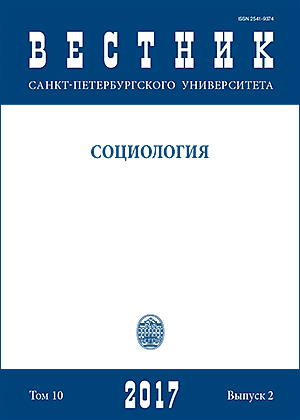EMPLOYEE EXTRA-ROLE BEHAVIOR: MANIFESTATIONS, ANTECEDENTS AND CONSEQUENCES
DOI:
https://doi.org/10.21638/10.21638/11701/spbu12.2017.204Abstract
The purpose of this paper is to examine manifestations, antecedents, and consequences of employees’ extra-role behaviour in Russian business organisations. The authors empirically identify four distinct types of extra-role behaviour: active prosocial, passive prosocial, oriented towards extra efforts at work, and challenge-oriented. The study is based on a sample of 112 employees from two organiza-tions (manufacturing and IT). The analysis shows that organization-based management practices are stronger predictors of extra-role behaviors compared to respondents’ individual characteristics. The authors also found that the two types of extra-role behavior (‘passive prosocial’ and ‘oriented towards extra-efforts at work’), typically demonstrated by among by low-resource employees, seemingly result from poor management practices, and negatively influence on respondents’ job satisfaction and career promotions. In turn, high-resource employees tend to be engaged in active prosocial and change-ori-ented behaviors. These two types of extra-role behavior lead to higher work satisfaction and career success. The analysis enriches understanding of the nature of extra-role behavior in Russian organisa-tions, its costs and benefits for organisations. It reveals the most effective types of extra-role behavior to be recommended for managerial implications.
Keywords:
employee extra-role behavior, organizational citizenship behavior, prosocial behavior, employee voice, work practices
Downloads
References
References
Downloads
Published
How to Cite
Issue
Section
License
Articles of "Vestnik of Saint Petersburg University. Sociology" are open access distributed under the terms of the License Agreement with Saint Petersburg State University, which permits to the authors unrestricted distribution and self-archiving free of charge.




